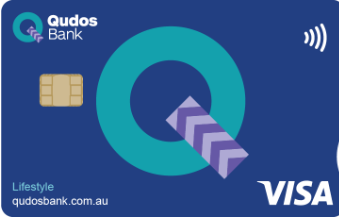Do credit card interest rates go up with inflation?

As interest rates rise, partially in response to increasing inflation, you may be worried about a potential increase in your credit card rate. The below information about the relationship between Reserve Bank of Australia (RBA) interest rate decisions and credit card interest rates could help you get a better understanding of the impact.
How are credit card rates set?
Credit cards give you access to credit, which is a type of loan – and lenders don’t offer you free money out of the goodness of their hearts. They’re businesses, and they lend money as a business service, which means you have to pay a fee for that service. One way that lenders can charge a fee for a loan is by charging interest. Generally lenders set their credit card rates at a level that they believe will generate enough income to cover their costs as well as provide profit for the lending service they offer.
Credit card providers may also charge other fees, which can also be impacted by other services offered with a card. For instance, a credit card that provides minimal additional benefits apart from credit may limit the monthly or annual fees, whereas you might find a rewards card charges monthly or annual fees. Additional fees can include late payment fees, cash advance fees and other similar kinds of fees which are usually based on how you use your card.

Credit Union SA - Education Community Credit Card
Purchase Rate
Interest Free Period
Balance Transfer
Annual Fee

Credit Union SA - Workplace Benefits Credit Card
Purchase Rate
Interest Free Period
Balance Transfer
Annual Fee

Defence Bank - Foundation Credit Card
Purchase Rate
Interest Free Period
Balance Transfer
Annual Fee

Qudos Bank - Lifestyle Credit Card
Purchase Rate
Balance Transfer
Annual Fee

BankVic - Low Rate Visa Credit card
Purchase Rate
Interest Free Period
Balance Transfer
Annual Fee
There are many factors that can affect the costs lenders incur in providing credit. For instance, they often borrow money in order to give you credit, in which case they have to pay interest on that money. They have to pay the salaries of employees who do things like process credit card applications and provide customer service. And they also incur costs to pursue people who don’t repay their debts.
Lenders would need to take all these costs and more into account when they set ranges for their credit card rates and fees. And in some cases they may adjust that range for an individual application based on the applicant’s credit history and score and financial situation.
It’s important to understand that credit card rates are typically higher than the interest rates of other types of loans, such as home loans. This is partly because they’re unsecured loans and a rolling line of credit.

Do credit card interest rates go up with inflation?
Even though the cash rate can impact how much interest a lender pays on the loans it takes out to fund credit cards, credit card interest rates in Australia bear very little resemblance to the official cash rate. Despite significant fluctuations in the cash rate, credit card rates have generally remained reasonably steady.
So, given that history, it’s less likely that credit card rates will rise in line with interest rate decisions from the RBA, however that doesn’t mean they won’t change at all.
Who determines when interest rates rise?
Individual banks and other lenders pick their own interest rates, and so it’s up to them to decide when they’re going to raise interest rates. However, the Reserve Bank of Australia (RBA) has a role to play in influencing interest rates in the lending market.
The RBA monitors inflation and takes steps to help control it if it dips too far below, or grows too far above, an average of 2–3 per cent. And one of the mechanisms the RBA uses to help put downward pressure on inflation is an increase in the cash rate.
The cash rate is the interest rate on unsecured overnight loans between banks. And when the RBA increases the cash rate, this causes other interest rates in the economy to increase. So, when inflation increases, the RBA may look to increase the official cash rate, and then banks and other lenders may increase their interest rates.

Does rising inflation affect my credit card rate?
From 1990 to 2022, the consumer price index in Australia has had some major fluctuations, compared to minimal changes in average credit card interest rates, which indicates there is little relationship between the two.
As a result, it’s unlikely that rising inflation will affect your credit card interest rate.
Note: Just because the cash rate and inflation have not thus far been predictors of credit card rate changes, that doesn’t mean that your credit card rate won’t go up over the coming weeks, months, or years. It will likely continue to fluctuate whenever lenders decide to adjust their rates.